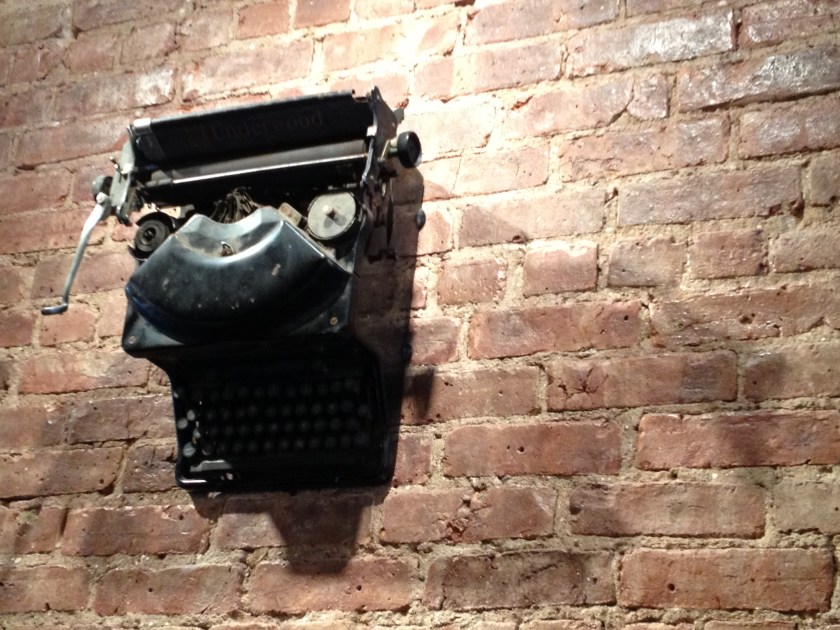
I was reviewing old emails the other day, and I came across a letter I wrote to a young college student who asked for my advice. He was considering joining his college newspaper. He also hoped to pursue an academic career as a historian and maybe dabble in writing historical fiction. He was worried he couldn’t do it all.
Now, I don’t consider myself particularly wise or much of a role model, but I thought I had a few guiding principles that might be useful, if only because history, journalism and fiction are my passions too.
Here’s shortened and edited version of what I said.
******
Thank you for reaching out. It sounds like you’re taking the right perspective and asking the right questions. My overall advice is this: Stick with journalism and see where it takes you. Does this mean you can’t be a historian? No. It will make you a better historian and academic writer. Does this mean you can’t be a fiction writer? Absolutely not. It will make you a clear thinker and writer.
I was always shy, but I realized early in life that I enjoyed expressing myself through the written word. When I was in my teens or early twenties, I read about Theodore Roosevelt and the many different passions he pursued throughout his life, and I decided I would be someone like that. I decided that my life would focus on three overall passions. I decided that I wanted to be remembered as a journalist, as a historian and as a historical novelist.
I started writing in college newspapers at Del Mar College in Corpus Christi (The Foghorn) and at the University of Texas at Austin (The Daily Texan). I wrote book reviews, reviewed theater performances and movies, and contributed op-ed pieces. I was already deeply interested in history, and I convinced the editors at the Texan to let me write an occasional column on history. Ironically, I wasn’t interested in straight reporting and was too shy to speak to strangers, so I never became a reporter. I worked as a proofreader — what they call a copy editor — and as a page designer.
After college, I eventually got a job at the Corpus Christi Caller-Times. No matter how accomplished you may be, always swallow your pride and start at the bottom — I started as a news assistant and junior copy editor — and work your way up. I did this even in college. Step by step. Prove yourself to your colleagues and to yourself. Learn everything you can from everyone — they all know something you don’t.
Figure out how each job and experience can help you move on to the next job and take on the challenge. The college newspaper jobs helped me get the Caller-Times job. The Caller-Times job led to a similar job at the San Antonio Express-News. That editing and writing experience was invaluable in graduate school at Texas A&M-Corpus Christi and at the University of Texas at San Antonio. After several years in academics, as you know, I’m now an editor at Texas Public Radio. …
I had always been interested in current events and foreign affairs. I always saw journalism and history as two halves of the same heart, the two ends of the same spectrum of civilization. I had an old-fashioned idea that all smart people — writers, scientists, athletes, anyone — should all spend at least a year working in some capacity at a newspaper. It’s a great place to learn how to write clearly and succinctly. Experience the constant flow of information all around you and through you. Understand the value of journalism in a democracy. I equated journalism to public service or military service — an enriching challenge that benefits everyone. That’s what motivated me to enter journalism and become an editor. I feel it is noble work, just as noble as being a teacher. You are really making a difference as a journalist. I wish more people would participate in the industry. I wish it was better funded.
Working in a newspaper taught me to pay close attention to details and maintain a consistent sense of what’s important and what isn’t. It strengthened my capacity to deal with all kinds of different people and personalities and deepened my sympathy for the less fortunate, those without a voice, those who need help. You can’t be afraid of a newsroom’s chaos, and you have to have faith that you can bring a semblance of order to it all. Always view problems and setbacks as opportunities. Always.
You’ve got your foot in the door at the student newspaper. Stay with it. Work for free. Work for the experience. Work at one job, then at another, then another. Build up a body of experience and a body of work. Work in different departments. Figure what you don’t like doing and what you really like to do. Write book reviews. Learn about the newspaper’s website. If you want to work at a professional newspaper or radio station, bring them a wide variety of examples of the work you’ve done in college. That will take time but it’s doable and worth every second of effort. Talk to journalism professors and to the leaders of the college newspaper or radio station. When you have time, see if professional newspapers/news web sites need help from a smart college journalist. That’s great experience too.
The great advantage of staying with journalism is this: The field has space for and needs all kinds of different, smart people to illustrate and explain the world for everyone else. Also, don’t assume that once you enter journalism you will be a journalist forever. Learn about science, literature, law, history, engineering, politics and other subjects. Let journalism be the foundation upon which you build a life filled with different experiences, different expertise and different ambitions. Becoming an effective journalist — editor, reporter, whatever — is only the beginning of your intellectual journey.











You must be logged in to post a comment.